Guest Post: Perspectives on Breastfeeding from a Clinical Pediatric Dietitian
In honor of National Nutrition Month, 1,000 Days is hosting its annual #Marchis4Nutrition campaign to amplify the critical role the world’s mothers play in nourishing the next generation. All month long, we have been imagining a world in which moms have the support they need to give their children a healthy start to life, highlighting the voices of moms and advocates across the country and around the world. The following guest post was written by Marti Toner, MS, RS, LD.
“Breastfeeding shouldn’t be complicated; women have been doing it since the beginning of time.”
“The pediatrician said that my baby isn’t gaining enough weight, so we are supplementing with formula.”
“My newborn is just a really good sleeper, I’m not going to wake her to nurse.”
“My diet isn’t perfect, so I’m giving my baby formula.”
“I went back to work and do not have time to pump to maintain my supply.”
Working as a clinical pediatric dietitian, I encounter variations of these sentiments on a recurring basis, often when a baby has been admitted due to “failure to thrive”, or poor growth. These comments come not just from mothers – I hear them from fathers, grandmothers, family friends, and even fellow clinicians.
Breastfeeding is hard. It requires work and commitment. Yet, few women in this country have access to supportive services to provide the tools to meet their breastfeeding goals. It has been widely promoted that breastfeeding is the ideal form of nutrition for infants for at least the first 6 months of life – but what if your little one struggles to latch? What if your milk supply doesn’t come in fully until your newborn is 5 or 6 or 7 days old? Or conversely, what if you develop oversupply?
In each of these scenarios properly trained lactation consultants are able to guide new moms through their struggles. However, once most women leave the hospital or birthing center, they lack access to such expertise (or do not know where to find it). Instead, women across the socioeconomic spectrum are left to navigate these hurdles on their own (and all on very little sleep!). Far too often, women who desire to breastfeed give up due to these obstacles.
I was almost one of those women myself: when my daughter was born two years ago, she initially latched beautifully. But because my milk supply did not come in immediately (it took a full week, in fact), she quickly grew frustrated when she was unable to obtain the nourishment she was seeking. I discharged from the hospital 48 hours post-partum and the situation grew worse at home. Despite my background in nutrition, I struggled to comprehend just what was happening or how to remedy the situation.
The difference in my case, however, is that I have a close friend and colleague who is an International Board Certified Lactation Consultant (IBCLC). She came to my house and worked with us to create a plan for feeding that would encourage my milk supply and teach my daughter how to effectively latch. While it was not an instantaneous victory, within a few weeks (and with a great deal of patience), my daughter was nursing well. Ultimately, she successfully breastfed for 14 months.
So what is the answer? If only it were that simple! Culturally, our country has a long way to go to offer the best environment for all mothers to meet their breastfeeding goals. But, implementing these 3 steps would be a reasonable start:
- First, education, education, education. Providing lactation support both prenatally and postnatally – via community programs, in OBGYN and pediatrician offices, and through widely disseminated web-based campaigns – to detail the benefits and portray an accurate depiction of breastfeeding.
- Second, all new mothers should have access to skilled clinical lactation care at little or no cost and within a reasonable distance to their home.
- Lastly (and this is a big one!), mothers should have the reassurance of job security while on a paid maternity leave. This guarantee would afford them the opportunity to establish and maintain a mutually beneficial breastfeeding relationship with their child.
If we as a nation truly want what is best for our children, we must start by supporting our mothers. We must provide clinical and intellectual resources to allow them to make educated decisions about the best way to nourish their children – and further, how to navigate any challenges that may arise.
Motherhood may often feel like an impossible responsibility – but feeding your child shouldn’t be.

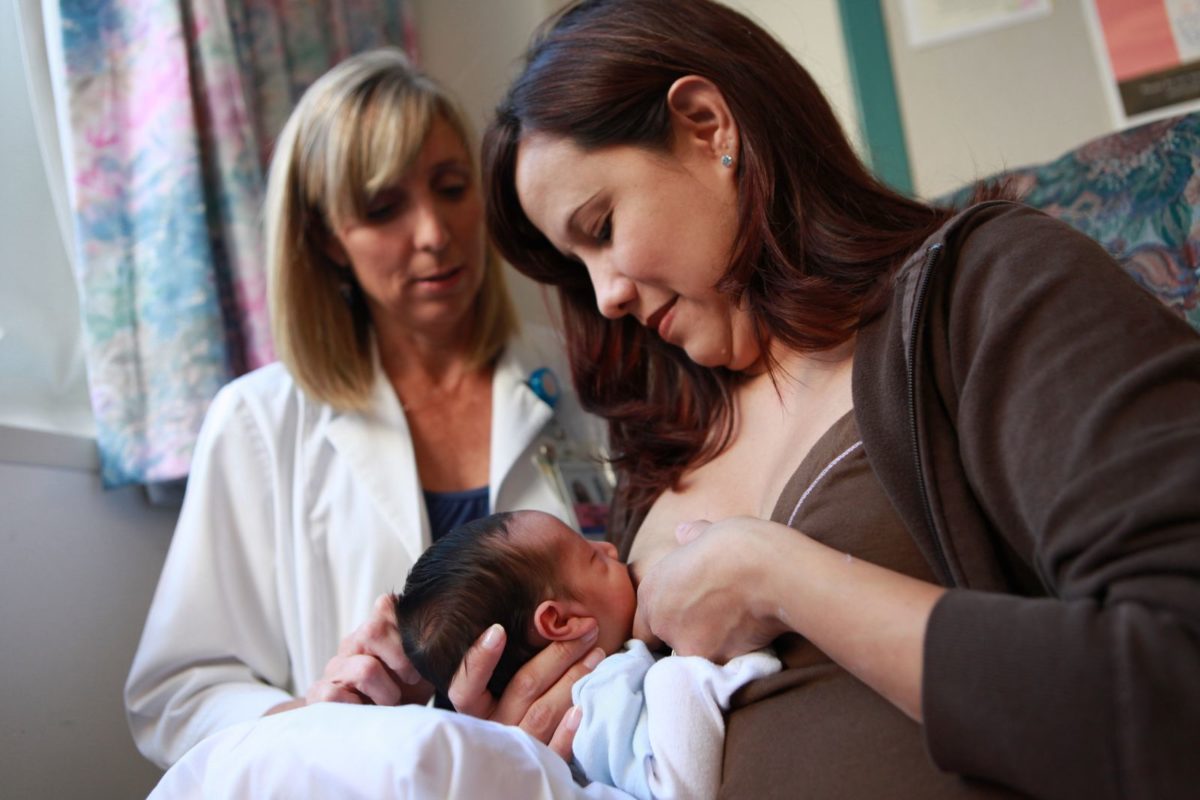

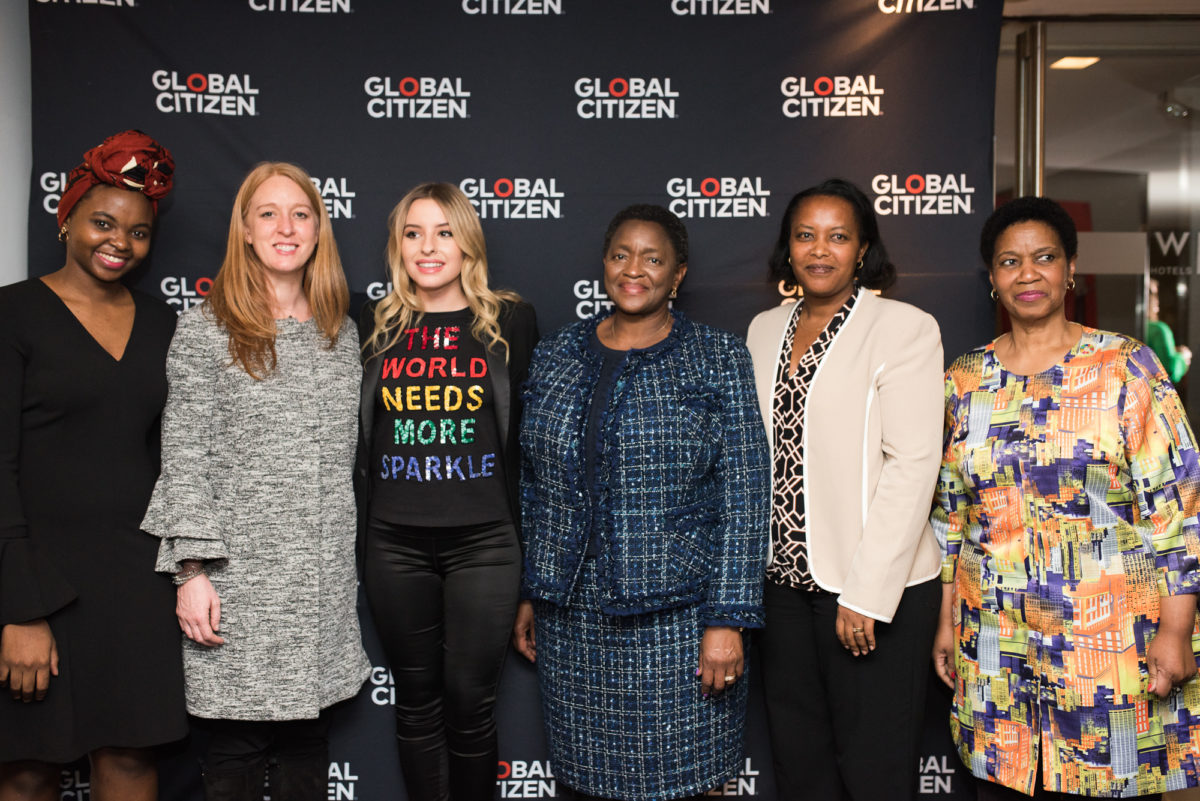
 This year at CSW, Global Citizen used the opportunity to kick off its “
This year at CSW, Global Citizen used the opportunity to kick off its “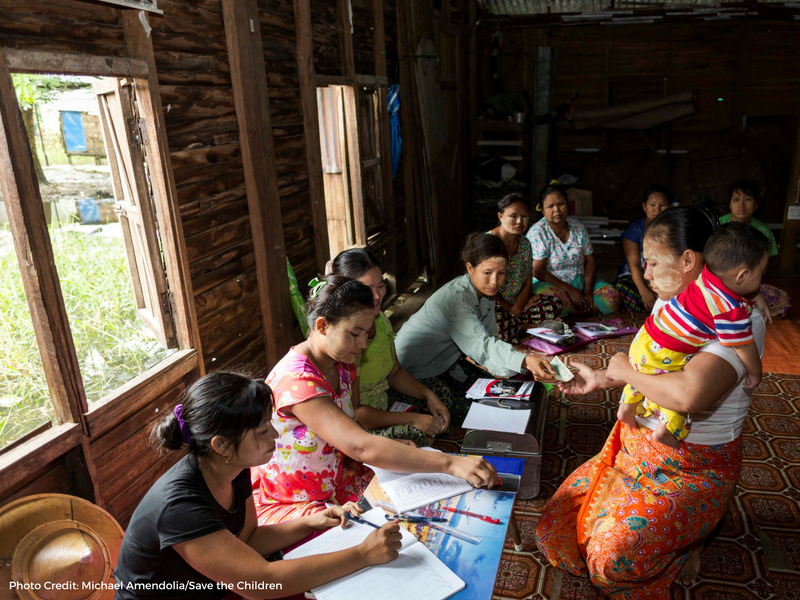
 The financial management training conducted by Save the Children changed my life. In the past, I spent as much money I had on unnecessary things. I couldn’t prepare breakfast for my children and instead I gave them money for them to purchase breakfast themselves. After the training, I got the knowledge of how to spend money and differentiate between needs and wants. Now, I prepare breakfast for children and I can save more money.
The financial management training conducted by Save the Children changed my life. In the past, I spent as much money I had on unnecessary things. I couldn’t prepare breakfast for my children and instead I gave them money for them to purchase breakfast themselves. After the training, I got the knowledge of how to spend money and differentiate between needs and wants. Now, I prepare breakfast for children and I can save more money.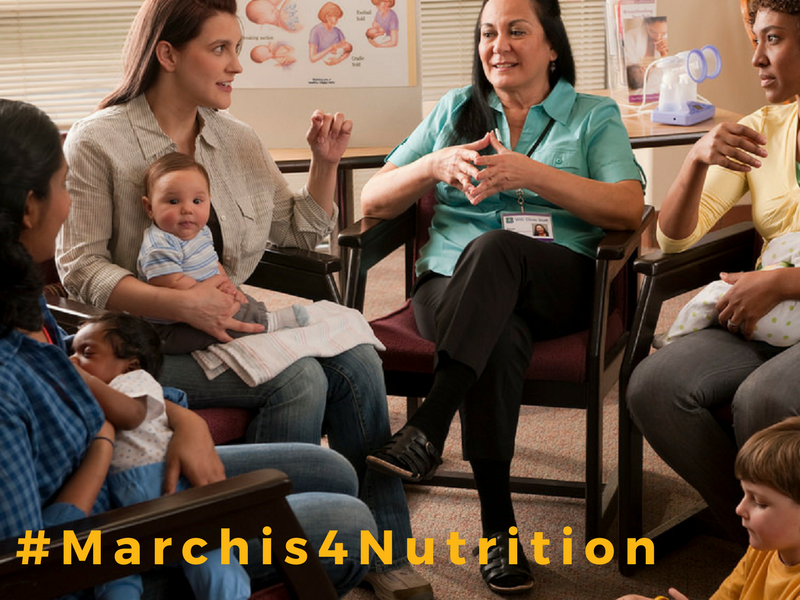
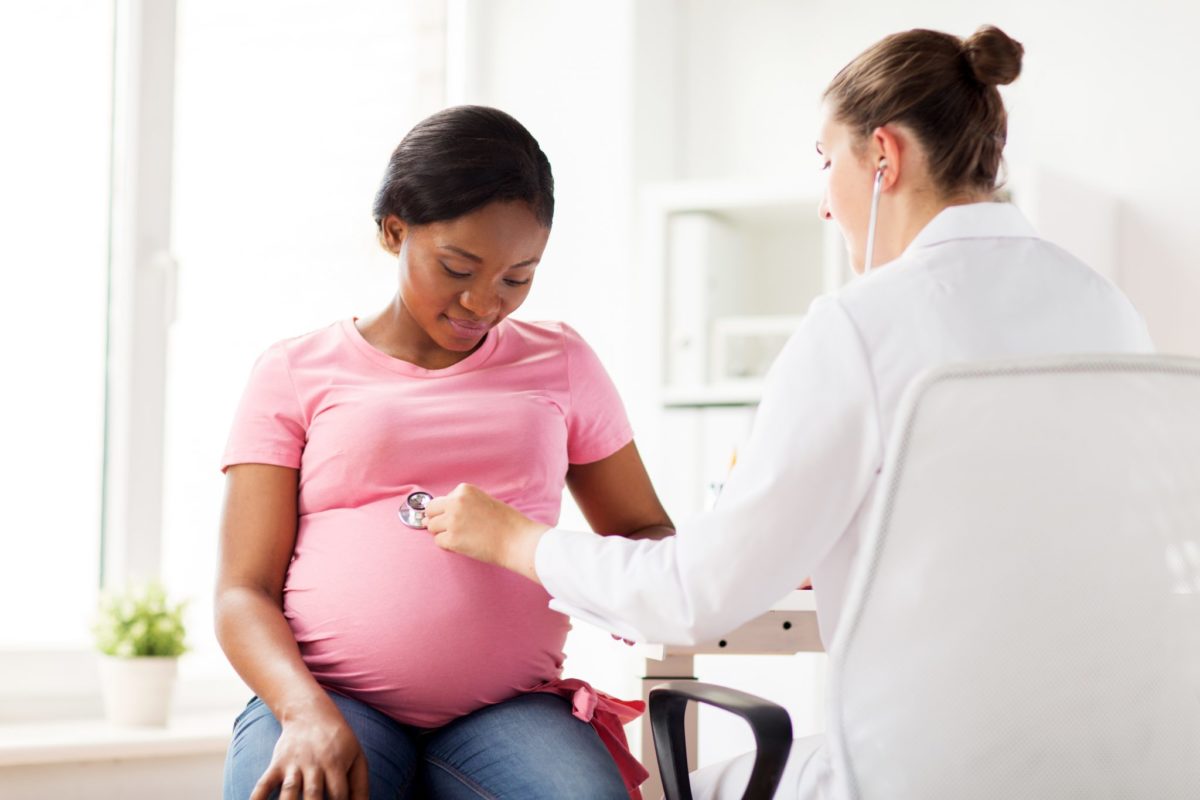
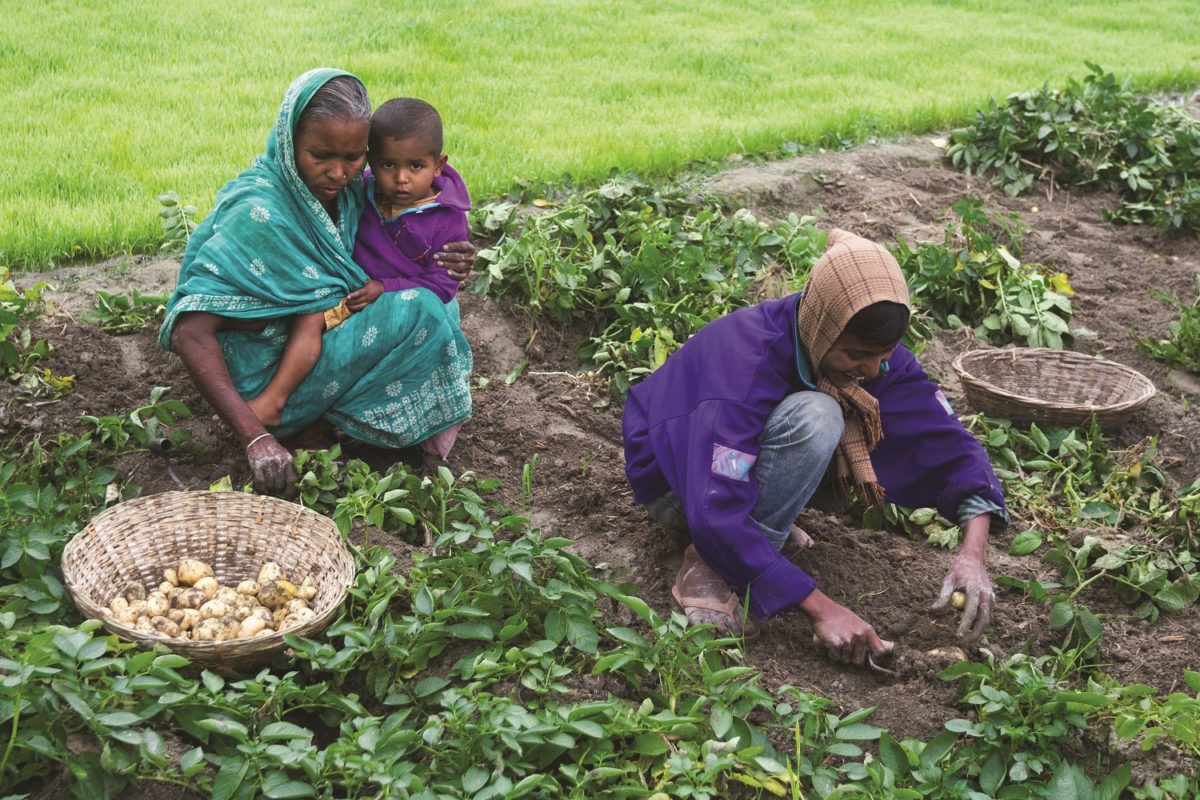
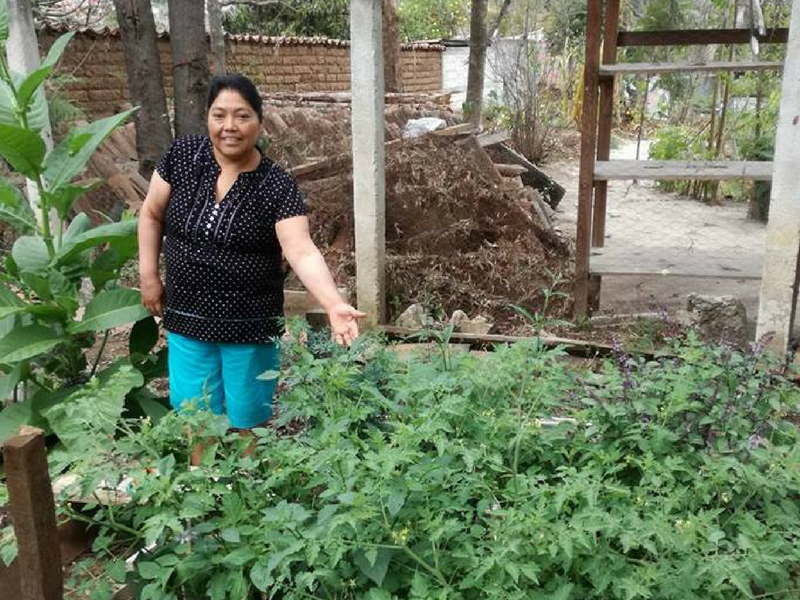
 Recently at home, with the support of my husband, I planted a garden where I have different plants and nutritious herbs. When my patients come to see me, I take the opportunity to talk them about the importance and benefit of consuming nutritious food and I show them my garden. There are also many local students who visit my garden to learn more about the benefit of the herbs and plants that grow in it.
Recently at home, with the support of my husband, I planted a garden where I have different plants and nutritious herbs. When my patients come to see me, I take the opportunity to talk them about the importance and benefit of consuming nutritious food and I show them my garden. There are also many local students who visit my garden to learn more about the benefit of the herbs and plants that grow in it.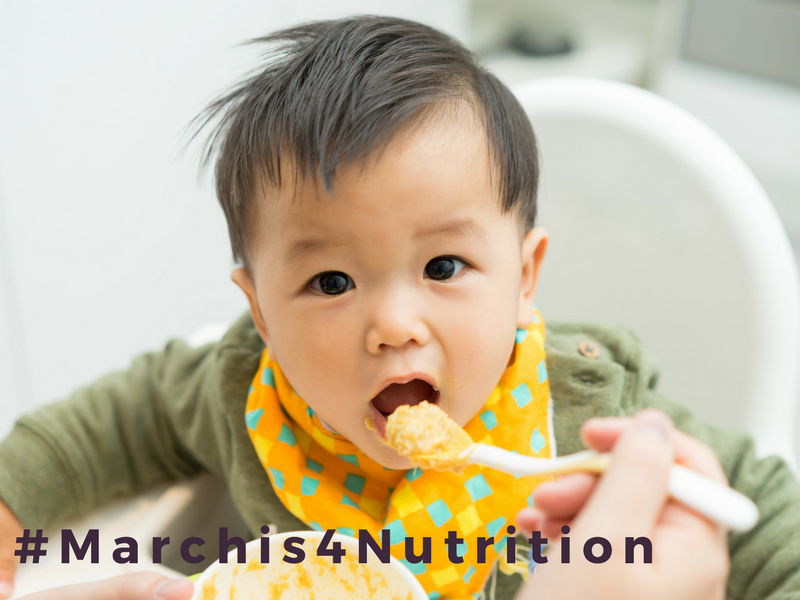
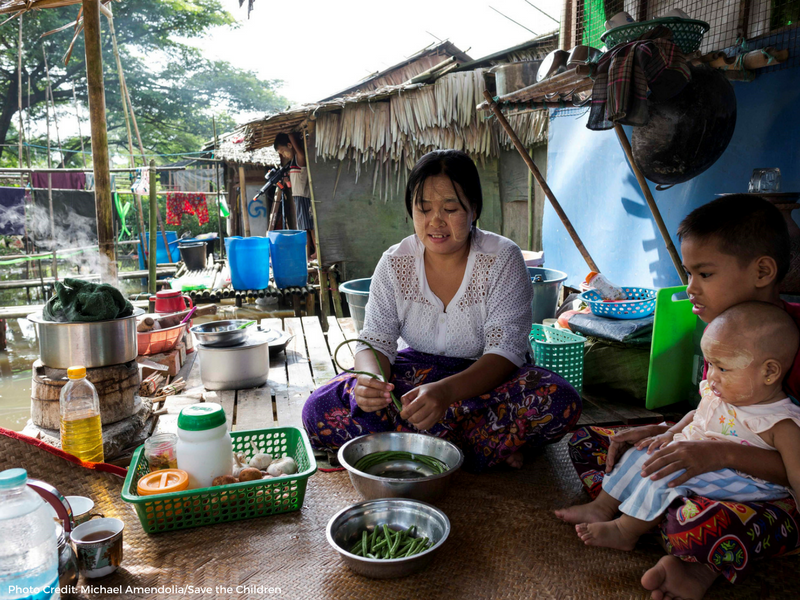
 baby thanks to the nutrition training from Save the Children. I fed my youngest child only after 6 months. Her appetite is also very good. Her health is also good compared to her elders. My eldest son is suffering from malnutrition. He is much shorter and smaller compared to his age. Not to be like her brother, I am taking care of my youngest daughter according to the training instruction from Save the Children. I attended the nutrition and financial education training together with my husband. He understands and supports me well.
baby thanks to the nutrition training from Save the Children. I fed my youngest child only after 6 months. Her appetite is also very good. Her health is also good compared to her elders. My eldest son is suffering from malnutrition. He is much shorter and smaller compared to his age. Not to be like her brother, I am taking care of my youngest daughter according to the training instruction from Save the Children. I attended the nutrition and financial education training together with my husband. He understands and supports me well.